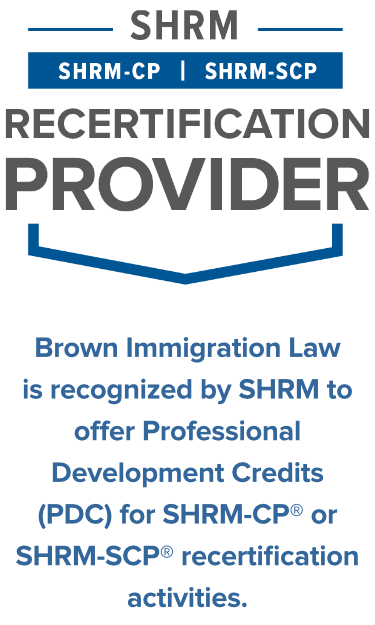Founders & Startups
Immigration Solutions for Startup companies
We represent a diverse cross-section of companies seeking to solve basic business problems, to those trying to reimagine transportation, energy consumption, or the future of work. All of our clients exist along a continuum, on one end where there are fledgling, relatively newly formed companies to the other end, where those “startups” are now global publicly traded multinational companies. While we represent every kind of corporate interest, it’s important at that early stage of startup to develop the right approach to immigration and solve the most important challenges facing the company.
In the startup context we represent founders who are foreign born and require immigration assistance, and startups where the founders have U.S. status and they are seeking to hire foreign born talent. While certain visa status types may be more available to foreign founders (e.g. the O-1A, IEP, or E-2) many of the status types we typically rely on can be used to support founders and employees alike.
Low hanging fruit
These visa options are typically quicker and easier to execute and administer so they are immediate options we consider whenever discussing hiring with a startup.
TN
- Only available for Canadian and Mexican citizens
- Limited to 10,000 Mexican visas per annum, no limits to Canadian approvals
- Covers list of professions recognized under the U.S. – Mexico – Canada Agreement “USMCA”
- Majority of professions require related degree – e.g. Accountant requires accounting related degree
- Period of entry up to 3 yrs (4 yr visa for some Mexican applicants)
- Temporary intent status
- Canadians can apply at the border, Mexicans through the Consulate (also eligible for USCIS filing)
E-3
- Available for Australian citizens only
- Limited to 10,000 visas per annum
- Similar to H-1/H-1B1 as position must be specialty occupation (degreed position)
- LCA required to confirm salary offered is market wage
- Period of entry – up to 2 yrs
- Temporary intent status
- Typically apply through the Consulate (also eligible for USCIS filing)
H-1B1
- Available for Singaporean and Chilean citizens
- Limited to 1,800 and 5,000 visas respectively per annum
- Similar to H-1/E-3 position must be a specialty occupation (degreed position)
- LCA required to confirm salary offered is market wage
- Typically granted 18 month entry and 3 yr visa
- Temporary intent status
- Application typically adjudicated by Consulate
H-1B
- Available to all passport holders, based on lottery for H-1Bs not exempt from the Cap
- Cap filings limited to ~80,000 per annum [65,000 regular H-1Bs, 20,000 US Master’s or higher degree exempt filings, less any H-1B1s granted to Singapore or Chile]
- Those hired by Cap Exempt employers can file at any time of year
- Those hired by a Cap subject employer (most private employers) must first qualify under the Cap; once accepted under the Cap, the H-1B can be transferred to other employers
- Position must be a specialty occupation (degreed position)
- LCA required to confirm salary offered is market wage
- Typically granted 3 yrs, visa maximum of 6 years of total H-1B time
- Dual intent status
- Application filed with USCIS
F-1 (CPT/OPT/STEM OPT)
- Work authorization while in F-1 status requires school approval
- Period of employment is outlined in I-20 document
- If seeking OPT or STEM OPT a request for an EAD must be filed
- OPT is typically granted at degree completion for 1 yr and STEM EAD is eligible for 2 yr extension
- Must file STEM EAD prior to OPT expiration
Employment should be in area of study completed
Dual intent status (conditions apply)
Application for OPT/STEM OPT filed with USCIS (CPT granted by school)
More complex options
Depending on the circumstances these might be the preferred option for application, but they are definitely more time and document intensive, but often the work is worth it.
L-1
- Requires qualifying corporate relationship (as parent to subsidiary, subsidiary to parent, affiliated ownership or other recognized relationship)
- Must have 1 yr of FT employment in last 3 yrs with related foreign entity
- Must hold executive, managerial or specialized knowledge role
- Initial approval 1 or 3 yrs; extensions issued in 2 yr increments
- No restrictions on country of origin
- Dual intent status
- Initial application filed with USCIS; Blanket applications filed with Consulate
O-1
- Available to any passport holder – no quota
- Applies to Aliens of Extraordinary Ability in business, sports, arts or sciences
- Arts based O-1s follow different slightly easier criteria
- Must meet at least 3 criteria for approval
- Typically granted 3 yr approval and 1 yr extensions
- Dual intent status
- Application filed with USCIS
International Entrepreneur Parole (IEP)
- Parole status created for founders of companies that receive funding
- Available to all passport holders, no caps or quotas
- Founder must own 10% or more of company and have received $250k or more from qualified investor
- Period of entry – 2.5 yrs for initial approval, with 1 extension available for same period
- Spousal and family Parole available as well
- Temporary intent entry allowance
- Application filed with USCIS
E-2 Treaty Trader
- Eligibility for visa based on qualifying investment from a treaty country investment
- Employee seeking visa must match investing country (e.g. Canadian citizen gets E-2 for Canadian investment, on flipside Canadian can’t get E-2 for Swiss investment)
- Investment is reviewed for sufficiency and marginality
- Prior employment with foreign employer not required
- Typically granted 5 yr visa with 2 yr entry allowance (varies between countries)
- Dual intent status
- Typically apply through the Consulate



